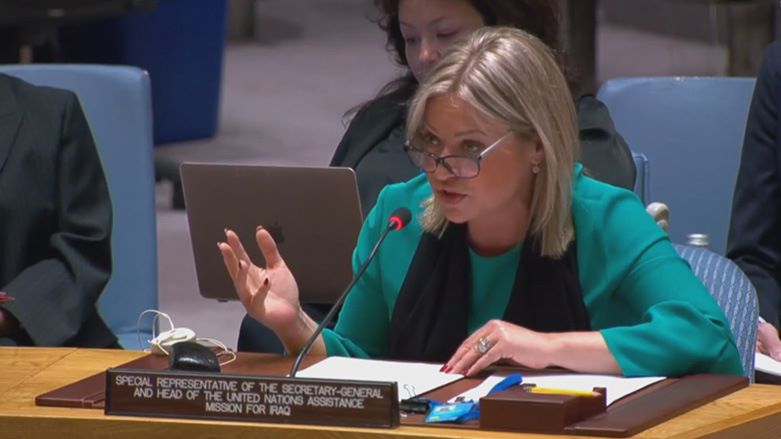Postponing Kurdistan Region’s elections again would be detrimental to public trust: UN Iraq envoy
"The Region’s elections are long overdue. Another postponement would be detrimental to public trust.”

ERBIL (Kurdistan 24) – The Special Representative of the United Nations Secretary-General for Iraq, Jeanine Hennis-Plasschaert, on Thursday called on the Kurdish parties to step up and bridge their differences to hold parliamentary elections, in a briefing to the UN Security Council.
On Kurdistan Region: I hope parties will now step up, bridge differences, and work in peoples’ interest. A glance at KR history or geography reinforces urgent need for sustainable solutions. KR elections are long overdue. Another postponement would be detrimental to public trust. pic.twitter.com/P6tbLnLLtH
— UNAMI (@UNIraq) May 18, 2023
“I hope parties will now step up, bridge differences, and work in peoples’ interest,” she said in her opening speech. “A glance at the Kurdistan Region’s history and geography reinforces the urgent need for sustainable solutions. The Region’s elections are long overdue. Another postponement would be detrimental to public trust.”
Members of the Kurdistan Democratic Party (KDP) and Patriotic Union of Kurdistan (PUK) senior leadership recently met to discuss holding the parliamentary elections scheduled for Nov. 18 this year.
The UN Envoy praised KDP President Barzani's recent call for a national dialogue between the PUK and KDP, adding there is a need to get things done in Sinjar, including carrying out the Oct. 2020 Sinjar agreement between the Kurdistan Regional Government and Baghdad.
“Stagnation creates further space for spoilers, and blocks IDPs (Internally Displaced Persons) return. Challenges to reconciliation will persist until meaningful steps are taken towards unified administration, stable security structures and reconstruction. It is high time to get things done,” she added.
Moreover, she described relations between Baghdad and Erbil as “good but complicated. I underline the importance of anticipatory governance and thus the structural institutionalization of relations. It remains essential to move beyond ad hoc engagements.”
Additionally, she emphasized the urgency for Iraq to address its water challenges and confront the climate crisis head-on.
“Fair sharing of resources among neighbours is equally important. Bold domestic actions and close regional cooperation offer the only winning solution.”